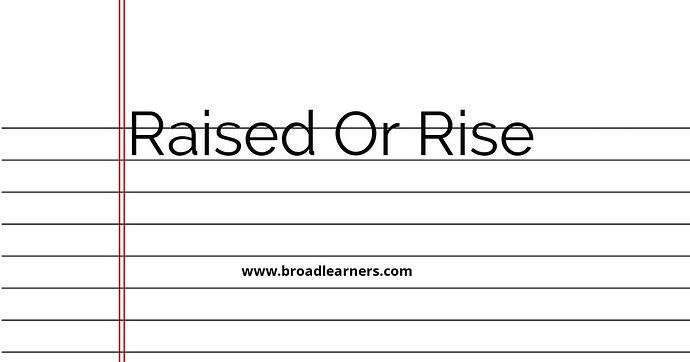'Raised' and 'rise' are commonly confused words in English grammar. Understanding the difference between 'raised' and 'rise' is important to use them correctly in written and spoken English.
'Raised' is the past tense and past participle form of the verb 'raise'. It is used to indicate the action of lifting or elevating something or someone.
'Rise' is the base form of the verb that means to move upward or to increase in amount, value, or level.
Let's take a closer look at the meanings and usage of 'raised' and 'rise'.
| 'Raised' | 'Rise' |
|---|---|
| The word 'raised' is the past tense and past participle form of the verb 'raise'. | The word 'rise' is the base form of the verb. |
|
|
To remember the difference between 'raised' and 'rise', it can be helpful to remember that 'raised' is the past tense of 'raise', while 'rise' is the base form of the verb.
Here are some examples of correct usage:
- I raised my hand in class yesterday. (past tense)
- The sun will rise tomorrow morning. (base form)
- She has raised her voice to express her opinion. (past participle)
- Prices have been rising steadily over the past year. (base form)
Remembering the correct usage of 'raised' and 'rise' will improve your grammar and communication skills.
